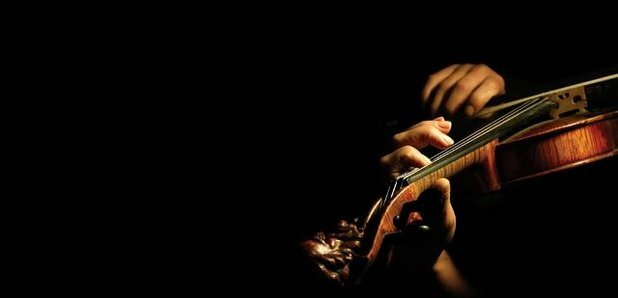I would like to say I always had a burning desire to play violin, but when I picked one up in fifth grade, it was purely as a joke. (Shout-out to bribing kids to pick up stringed instruments by letting them leave class for an hour to go to Strings Class.)
Music has had the biggest unintentional influence on my life.
I never put the violin down after that. And, after 11 or so years of performances, music has taught me some things.
One of the first things it has taught me is the importance of accountability. One person can sabotage an orchestra. There’s the player that plays obnoxiously loud and completely out of tune, that player whose bow (the stick that violinists and other stringed players hold) constantly goes the wrong direction, or the unfortunate soul that doesn’t know the music and lets it rip during a moment of what should be complete silence.

Via: Classic FM
Everything about an orchestra should be identical, so it is your job to jive with your team. While there isn’t an “I” in team, there is a “me.” You must be accountable for yourself, just like you must be accountable for your team.
An ensemble’s constant struggle is to balance the sounds of the different instruments, to ensure everyone is heard to some degree, which brings me to the second thing performing music has taught me: the importance of balance. Without it, you are either hearing one instrument wailing away or a cacophony of each instrument competing with the other to be heard.
Too often, a lack of balance in my own life has led me to neglect things that are important to me (i.e. that elusive creature known as a social life).That being said, we need to prioritize our lives.
And, there is definitely a hierarchy of importance in music as well as in life. The instrument with the moving line should be heard the most as the melody, while the other instruments take a supporting role as the harmony. And, sometimes the instrument with the moving line often switches. It’s the same concept in life. If it’s finals week, studying should probably be your melody, while Netflix is your harmony.
 Via: Easy Ear Training
Via: Easy Ear Training
Balance is important, even in knowing your own personality and what it means to be vulnerable. Performing music has taught me that vulnerability does not have to be a negative thing. Vulnerability is being available to experience the emotions of a piece, to feel nervous before a performance, to feel weightless after one. To feel vulnerable, or feel anything, while you are performing makes for someone who is fun to watch.
Likewise, someone who is vulnerable in conversation also makes for someone who is fun to be around. There is something about vulnerable people that encourages other people to open up and feel at ease around you.
And, while we’re on the topic of vulnerability, one of the things that can make you feel that vulnerability more than anything is making mistakes, but it’s okay. Mistakes during a performance are inevitable. You can either treat them like the natural occurrences that they are, or you can ruminate over them and let them ruin your performance.
Yes, mistakes can still be unsettling, but society often looks at mistakes as the worst possible thing that could ever happen to you. In music, while thousands of notes are flying by you, if you miss a few, so what? It’s like when you say something stupid to that hot guy at the bar. You could let that one thing ruin your night, or you could suck down a rum and coke and dance the night away.
 Via: NPR
Via: NPR
Performing has taught me so much about the world and myself. I may have started violin as a joke, but now it seems like it would have been a cruel joke if it wasn’t a part of my life.
Featured photo courtesy of: So Augusta





